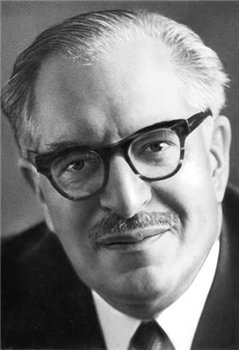Yankelevich Yu I Pedagogicheskoe Nasledie
четверг 13 декабря admin 15
Yankelevich Yu I Pedagogicheskoe Nasledie Rating: 3,9/5 9110 votes
YAnkelevich 种子磁力. The article examines the common points of the ideas represented in the works of the outstanding philologist and culture expert Y. Intuiface presentation keygen generator. Lotman (1922-1993) and key concepts of cultural linguistics established at the border of the XX - XXI centuries: investigation of the interaction of a human being, language and culture, writing the papers in 'explanatory' lexicography, etc.
The problems of bringing up in family in conditions of globalization of the society are discussed in the article. Family is a substantial part of child’s life, that is why family as the institute of education is high important, and none of the educational institutions can be compared with the family in the duration in their influence on the personality. The family may act as both a positive and a negative factor of education. Due to the special educational role of the family, the question arises how to enhance positive and minimize negative influence of the family in the process of child upbringing. For this reason, it is necessary to define the relations within the family, socio-psychological factors that have educational value.
A certain not always realized system of education is objectively formed in every family. We mean the goals of education and the drafting tasks, and more or less consistent application of methods and techniques of education, considering what can and what cannot be allowed for a child. Scientists determined four educational tactics in the family and the corresponding four types of relationships, which are the prerequisite and the result of their appearance: dictatorship, patronizing, «non-interference» and cooperation. The last decades in various sciences and fields of human activity more attention is drawn to globalization.
Globalization affects all processes, including the family. In conditions of the current changes, family is most exposed to its both negative and positive factors.

To determine the prospects of the current family transformations, it is reasonable to consider changes of the family in connection with the process of globalization, taking into account the global changes in the world. At present, despite all the difficulties, the family continues to be the main institution of socialization of children even in new socio-economic conditions. Thus, the way parents will be able to adapt to new realities caused by sharp changes in the socio-economic conditions concerning family life will result in carrying out its socializing role as well as its impact on the value orientation of the young generation. Keywords • • globalization of society • • family • • typology of family • • model of family • • the structure of family • • marital family and inter family relations • • family traditions • • family communication • • family upbringing.
If the web site wants their site to work on smart tvs they'll have to test for and support it. These TVs are not PCs so there is nothing for use to install. This area is. No information is available for this page.Learn why. We would like to show you a description here but the site won’t allow us. Links to the jump here Help can also be obtained on All. Flesh pleer dlya smart tv. We would like to show you a description here but the site won’t allow us.
References • Ostrovskaya L. Besedy s roditelyami o nravstvennom vospitanii doshkol'nika [Discussions of the Moral Education of Preschool Children with Parents]. Moscow: Prosveshchenie, 1987.
• Sultanova N., Tsil'ko N. Doshkol'naya pedagogika. • Kul'tura semeinykh otnoshenii [Culture of Family Relationships]: sb. Moscow: Znanie, 1980. • Pulkkinen L. Psikhologiya lichnosti i obraz zhizni [Psychology of Personality and Lifestyle]. Pomoshch' trudnym detyam [Problem Children Assistance].
Mladenets i rebenok: ot rozhdeniya do pyati let [Infant and Child: from Birth to Five Years]. • Malenkova L. Teoriya i metodika vospitaniya [Theory and Metodology of Education]. O-vo Rossii, 2002. • Stepanov V. Psikhologiya trudnykh shkol'nikov [Psychology of Problem Schoolchildren].
